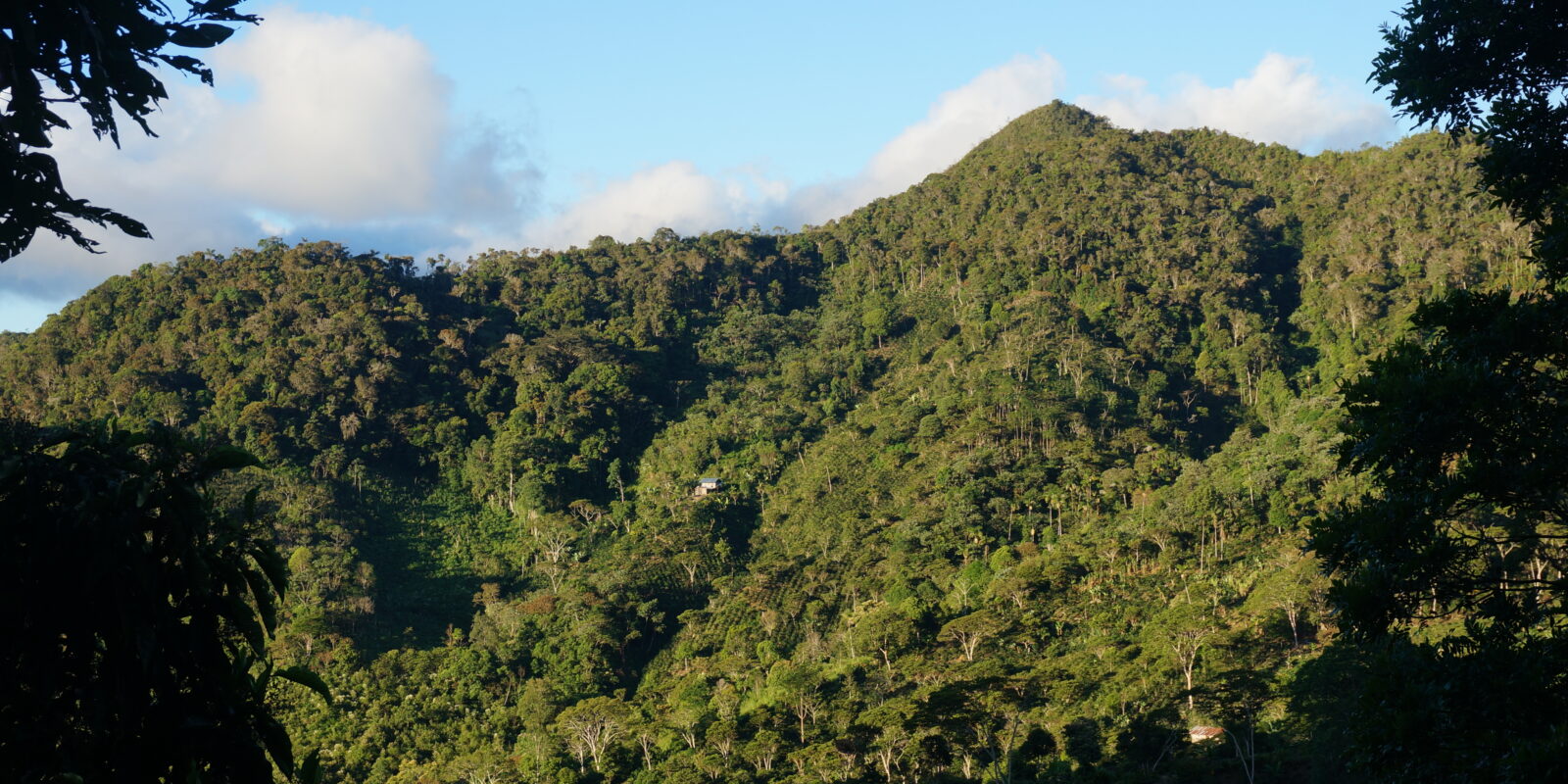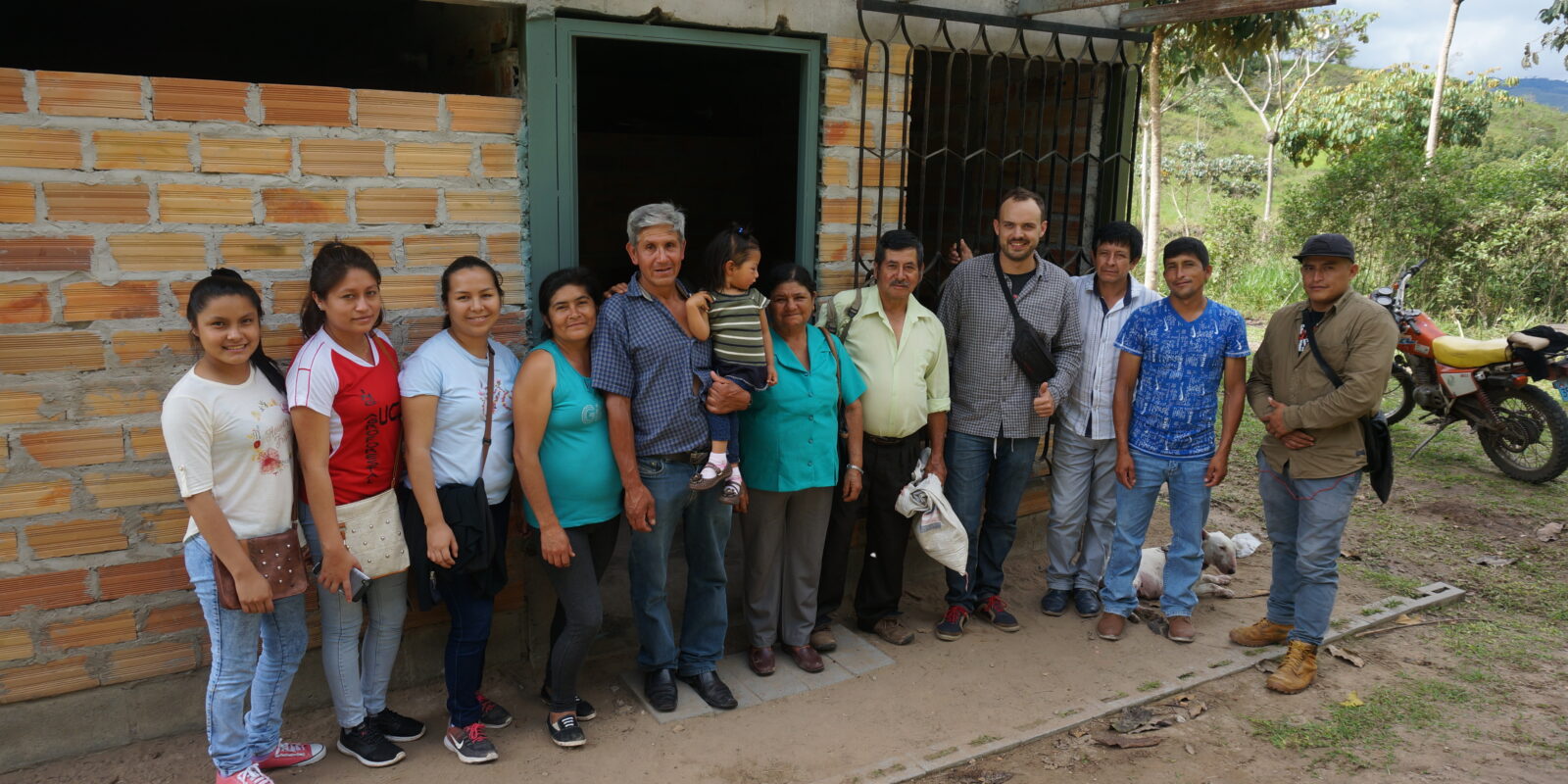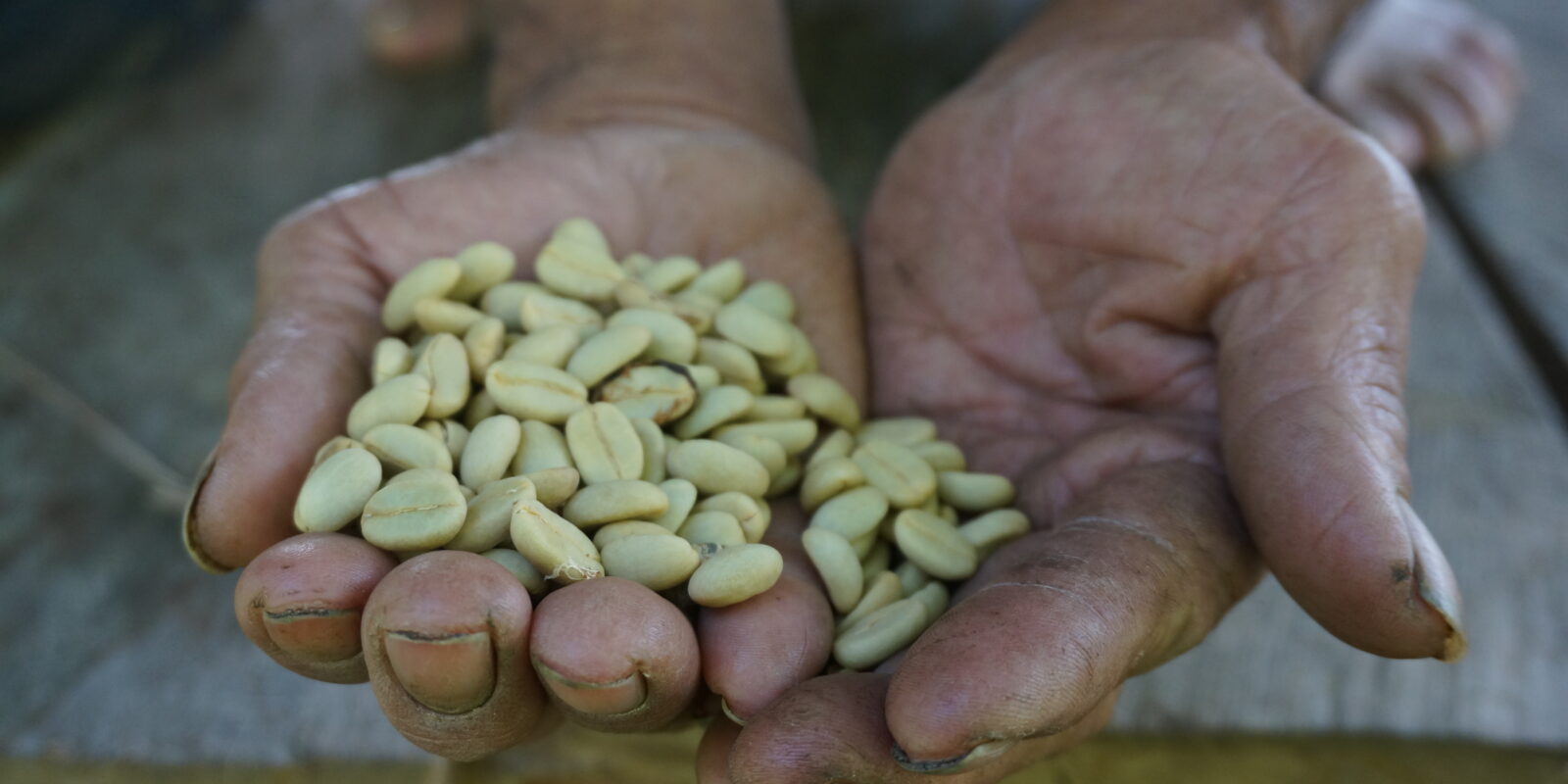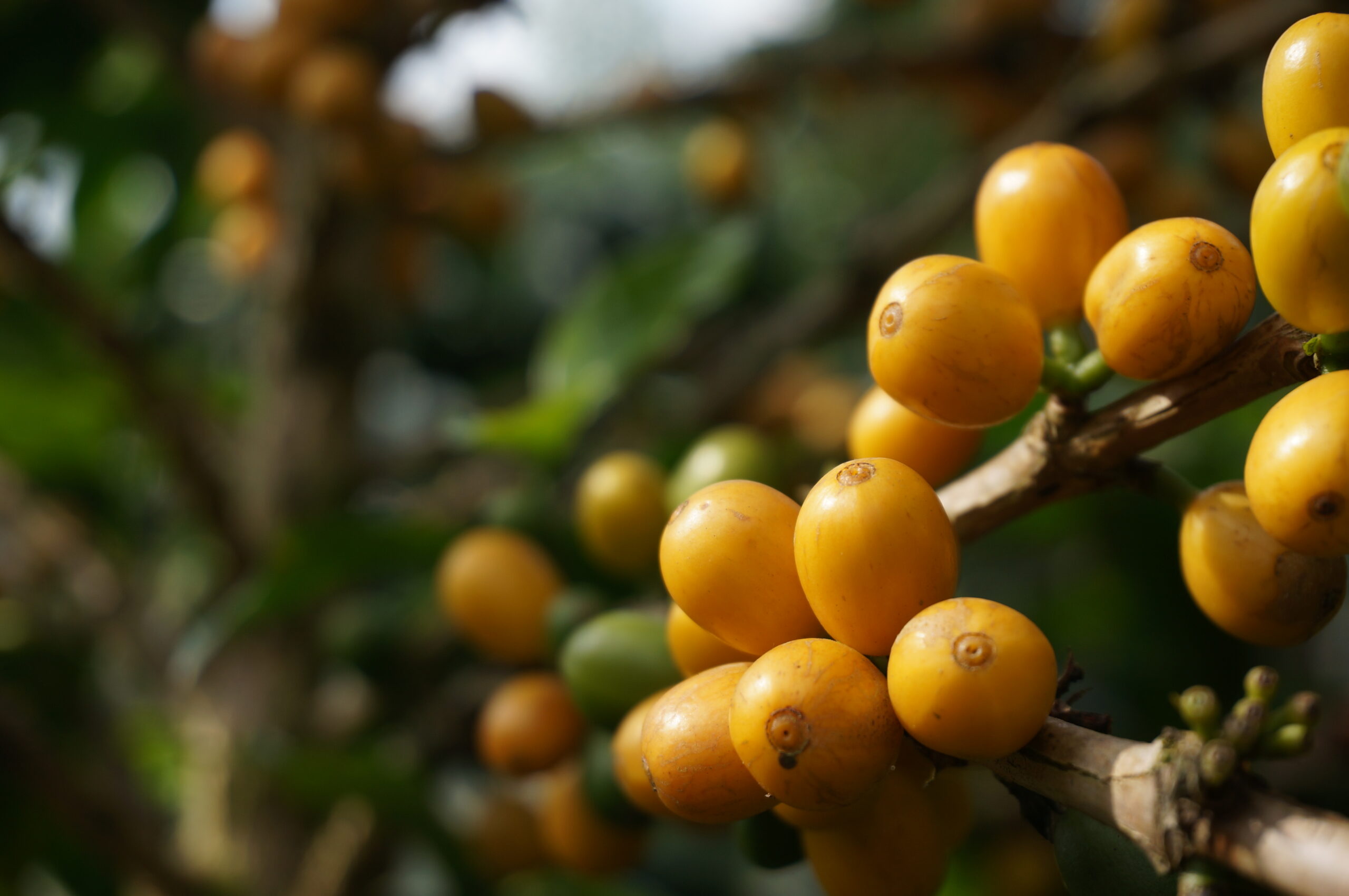MOYOBAMBA
Aproeco
About Aproeco
The cooperative Aproeco is rather small and familiar with about 250 members. The name also describes the philosophy of the organization: Aproeco means Asociación de Productores Ecologicos (Association of Ecological Producers). The members of the cooperative regard their natural ecosystem as a beautiful and necessary resource for a good life. Rarely have we seen such tremendous nature as in the mountain rainforest near Moyobamba, which is also known as the city of orchids with several thousand wild orchid species.
The coffee fincas of some cooperative members can hardly be made out under the canopy of leaves. The fincas are more like a Garden of Eden than a piece of cultivated land. Many live largely in subsistence and cultivate, in addition to coffee, various other plants such as cassava, banana, pineapple, citrus, spices, vegetables, herbs, orchids, avocados and others. In combination with gentle animal husbandry (guinea pigs, chickens, few cattle or pigs, mules) and agroforestry (indigenous timber), they live at the same time largely independent and yet in poverty. Fluctuations in the price of coffee, oil, rice or diesel hit these people hard. They are only slowly gaining access to basic public services. Many still live without running water, electricity or access to the health system. They cannot reach their households by motor vehicles. They live the natural but deprived life of pioneers in the Peruvian mountain rainforest.
How it all began
Large parts of cumpa’s story begin at the Aproeco cooperative. After a first trip to Peru in 2013/2014, cumpa co-founder Lukas went to Moyobamba again in 2016 to do a voluntary internship at the Aproeco cooperative. During the two weeks he got to know coffee fincas for the first time, cupped coffees and was involved in buying and selling in the cooperative.
The transparency shown by the Kooperative staff was enormous. One year later, in 2017/2018, Lukas completed his student internship semester in “International Management” at the cooperative again. Several student projects were written around the region and the topic of coffee. We later presented a future study for the coffee region together at the World of Coffee Festival in Amsterdam. We also sent green coffee to Germany for the first time: 12 bags of hand-selected microlots, packed in GrainPro and hand-painted jute bags. This coffee later paved the way for first green coffee orders in Germany. At the end of the 2018 internship, Daniel also visited Peru and the cooperative. The most important thing that developed during this time were the friendships and mutual trust.
The work of the cooperative
In the cooperative one learns in particular about social and ecological innovations in coffee cultivation. In a family-like atmosphere, the cooperative is always there to help members in times of need, for example when members fall ill or have an accident, need money for their children’s education, or need to make investments in the fincas. The mutual help is impressive. At the same time, the technical assistants vigorously promote organic agriculture and advanced qualities.
In the meantime, most of the Catimor plants planted in 2012 have been replaced by higher-quality varieties such as Marsellesa, Pink Bourbon, and Gran Colombia. The cooperative is continuously building appropriate fermentation and drying infrastructure with the farmers. Employees receive various trainings on cultivation and production processes. During internal inspections, they walk many kilometers and bring the knowledge to the most remote farmers.
Current initiatives
The cooperative wants to prepare its members for a more difficult future in the wake of climate change. In the latest project, the farmers* are planting 7.5 hectares of lowland coffee (Coffea Canephora) in the lower areas near the city. Here, coffee rust is now ravaging even the once-immune Catimor hybrids, forcing many farmers to abandon their coffee fincas.
With lowland coffee in the agroforestry system carbon can be bound, people get a new perspective with coffee and an innovative market can arise. This project is realized by Qoffee Qulture e.V. with the support of SEZ Baden-Württemberg and takes place in cooperation with the cooperative Oro Verde.
Aproeco and cumpa
The lots “Kuntu” and “Kuntu Organic” of Aproeco reflect the soul cumpas. The aroma of the rainforest is for us firmly linked to wonderful friendships.
It makes us happy and proud to have developed this network for so many years. We can show through our joint work that it is very possible to maintain empathetic, friendly relationships over long distances and to share each other’s life stories.




